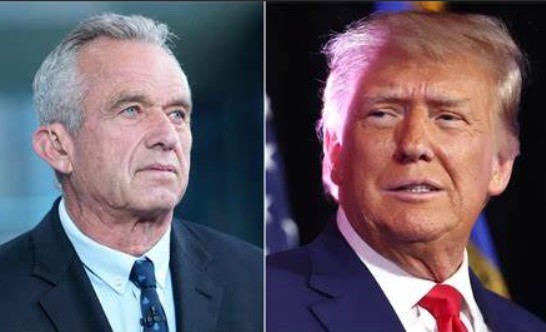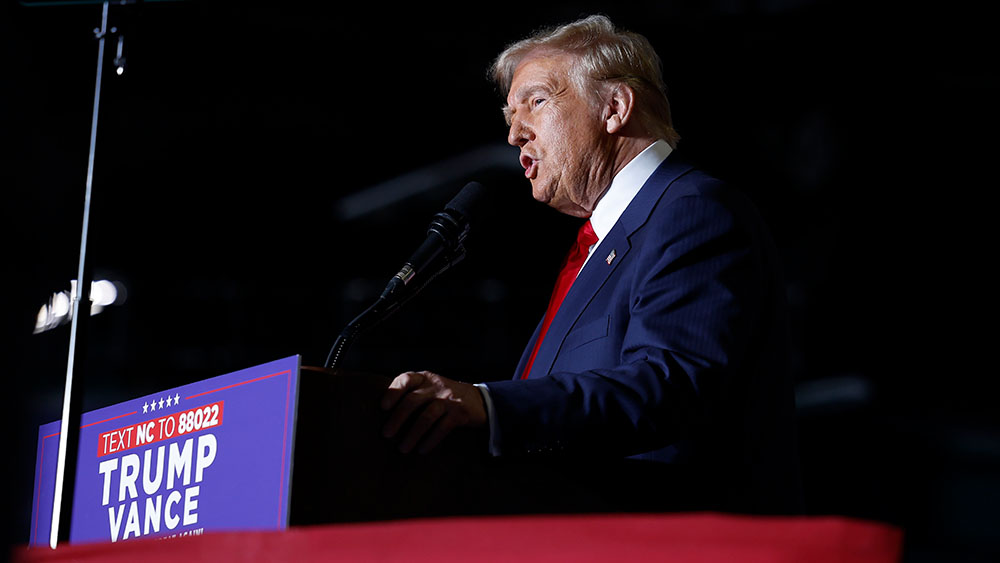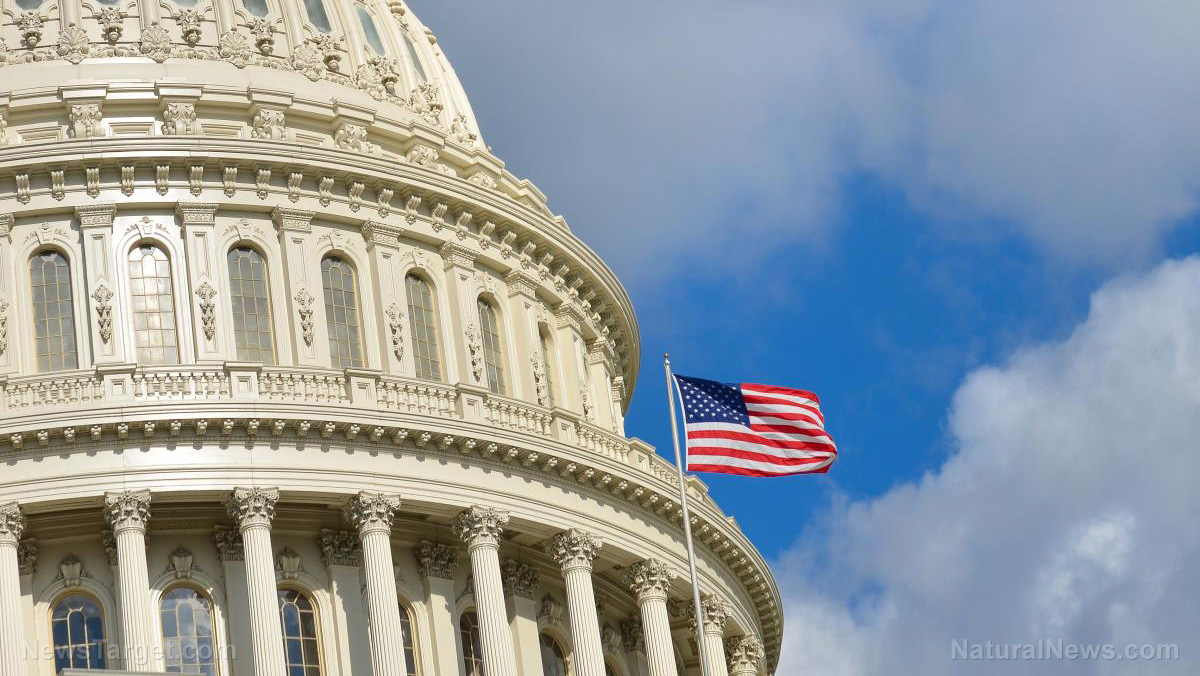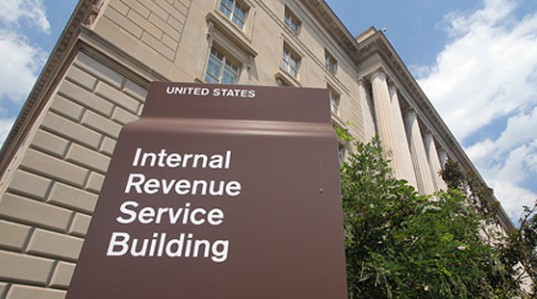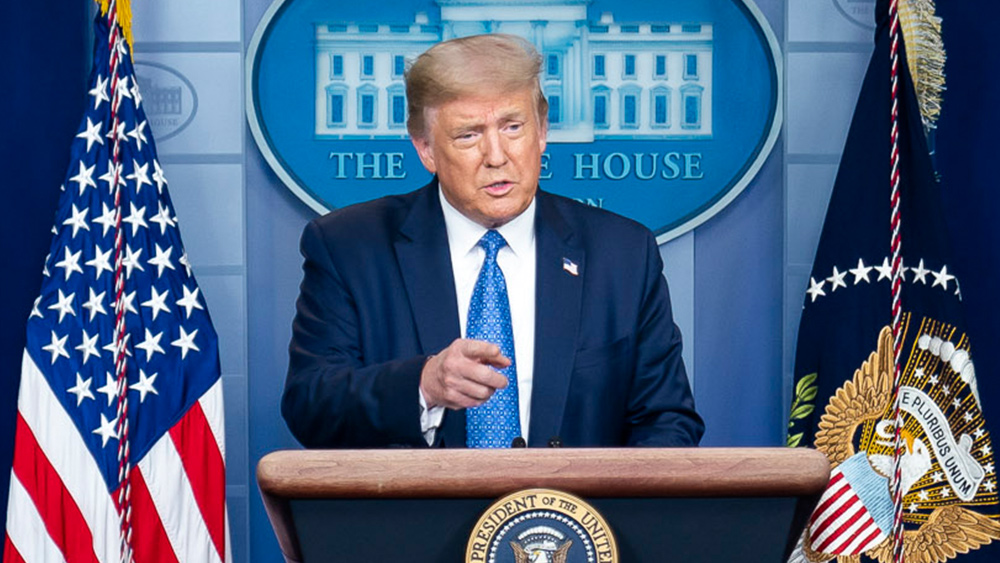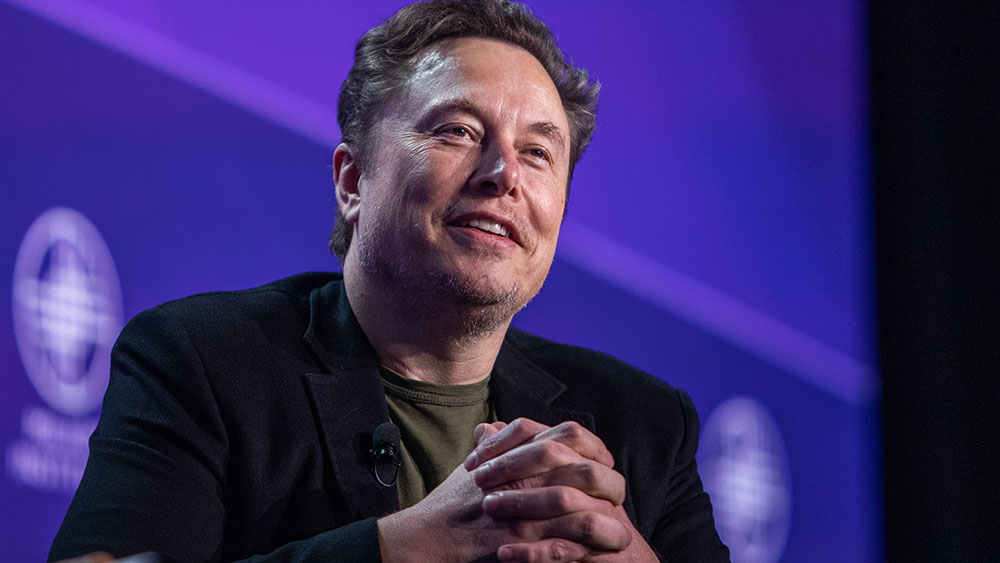Trump’s DOGE saves $1 BILLION daily
01/30/2025 / By Willow Tohi

- President Trump’s Department of Government Efficiency (DOGE), led by Elon Musk, claims to be saving the U.S. government $1 billion per day through various measures aimed at reducing federal spending.
- DOGE has halted non-essential hires, dismantled diversity, equity and inclusion (DEI) initiatives, and stopped “improper payments” to foreign organizations, targeting areas that the administration views as wasteful or unnecessary.
- Critics question the sustainability and validity of DOGE’s savings, citing a lack of transparency and compliance with federal laws. The initiative also faces backlash from progressive groups over DEI cuts and concerns from international allies over the pause on foreign aid.
- DOGE’s success could have significant implications for the U.S. economy, potentially reducing the deficit and stabilizing bond yields, but its temporary status raises questions about the sustainability of its reforms.
In a bold move to rein in federal spending, President Donald Trump’s newly established Department of Government Efficiency (DOGE) claims to be saving the U.S. government $1 billion per day. Led by tech mogul Elon Musk, DOGE has frozen non-essential hires, dismantled diversity, equity and inclusion (DEI) initiatives, and halted “improper payments” to foreign organizations. While these measures have sparked optimism among fiscal conservatives, critics question whether the savings are sustainable—or even real.
A billion a day: How DOGE is cutting costs
DOGE, created via executive order in January 2025, is not a traditional federal department but a temporary advisory commission tasked with slashing government waste. According to its official X account, the agency has already saved $1 billion daily by targeting three key areas:
- Freezing non-essential hires: DOGE has halted the hiring of personnel deemed unnecessary, a move that aligns with Trump’s broader agenda of reducing the federal workforce.
- Eliminating DEI programs: The administration has aggressively dismantled DEI initiatives across federal agencies, arguing they are costly and divisive.
- Stopping improper payments: DOGE has paused foreign aid programs for 90 days, citing concerns over misuse of taxpayer dollars.
These measures, if sustained, could save the U.S. government $365 billion annually. For context, this amount could cover nearly half of the U.S. defense budget or significantly reduce the $882 billion in annual interest payments on the national debt.
A return to fiscal conservatism
The U.S. last achieved a budget surplus in 1998 under President Bill Clinton, thanks to a combination of economic growth, spending cuts and bipartisan cooperation. Since then, deficits have ballooned, driven by wars, entitlement programs and economic crises. Trump’s DOGE initiative harkens back to the fiscal conservatism of the 1990s, but with a modern twist: leveraging private-sector expertise to streamline government operations.
Elon Musk and Vivek Ramaswamy, DOGE’s initial co-leaders, outlined their vision in a November 2024 Wall Street Journal op-ed, pledging to cut $500 billion in annual federal spending by targeting “expenditures that are unauthorized by Congress or being used in ways that Congress never intended.” While Ramaswamy has since stepped down to pursue a gubernatorial campaign in Ohio, Musk remains at the helm, bringing his reputation for efficiency and innovation to the federal government.
Challenges and controversies
Despite its early successes, DOGE faces significant hurdles. Critics argue that the $1 billion daily savings figure lacks transparency and detail. “DOGE has been operating secretly and out of compliance with federal law for some time,” said Skye Perryman, CEO of Democracy Forward, a nonprofit suing the agency over its structure and lack of transparency.
Additionally, the agency’s focus on cutting DEI programs has drawn backlash from progressive groups, who view these initiatives as essential for promoting fairness and inclusion. Meanwhile, the pause on foreign aid has raised concerns among international allies, who rely on U.S. support for stability and development.
DOGE’s legal standing is also under scrutiny. Multiple lawsuits allege that the agency violated the Federal Advisory Committee Act (FACA), which requires transparency and public representation in federal advisory committees. While Trump’s executive order reclassified DOGE as an executive branch entity, critics argue that the move is merely a legal maneuver to sidestep accountability.
Could DOGE transform the U.S. economy?
If DOGE’s savings continue, the impact on the U.S. economy could be profound. Reducing the deficit by $365 billion annually would lower interest costs, stabilize bond yields and potentially curb inflation.
However, fully eliminating the deficit would require cutting $5 billion daily, a target that seems out of reach given current savings rates. Moreover, DOGE’s temporary status—it is set to dissolve in July 2026—raises questions about the long-term sustainability of its reforms.
While DOGE’s early results are promising, it remains to be seen whether the agency can deliver lasting change. For fiscal conservatives, the initiative represents a rare opportunity to rein in government spending and restore accountability. For skeptics, it is a politically charged experiment that risks undermining essential programs and alienating key constituencies.
As the U.S. grapples with a $34 trillion national debt and rising interest costs, DOGE’s success—or failure—could shape the nation’s fiscal trajectory for decades to come. Whether it is a fiscal revolution or political theater, one thing is clear: the stakes could not be higher.
Sources include:
Submit a correction >>
Tagged Under:
big government, debt collapse, DOGE, Elon Musk, fiscal responsibility, government debt, government waste, progress, taxpayer dollars, Trump, White House
This article may contain statements that reflect the opinion of the author
RECENT NEWS & ARTICLES
Trump.News is a fact-based public education website published by Trump News Features, LLC.
All content copyright © 2018 by Trump News Features, LLC.
Contact Us with Tips or Corrections
All trademarks, registered trademarks and servicemarks mentioned on this site are the property of their respective owners.

